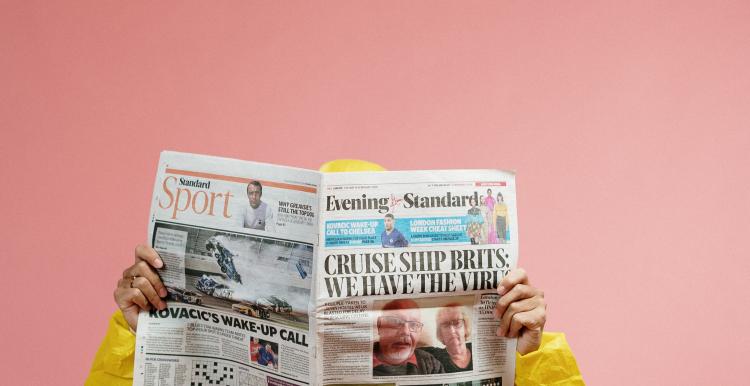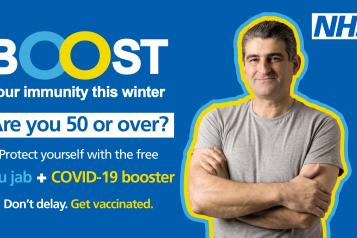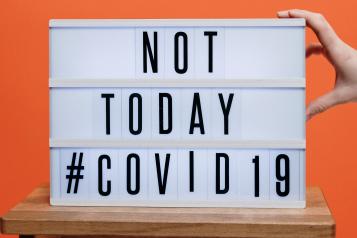Coronavirus: a teenager's guide

If you're a young person, to get the best up-to-date info check out the below sources:
We recommend you to check:
- Youth Out Loud!
- NHS England
- Public Health England
- Mencap for an easy read document with questions and answers
- A series of videos in BSL for those who are deaf or hard-of-hearing.
- The Coronavirus information service on WhatsApp. Check on the Government's website how to add it to your list.
Why children are being offered the COVID-19 vaccine
COVID-19 is usually mild in most children, but it can make some children unwell.
1 dose of the COVID-19 vaccine gives you good protection against getting seriously ill. But 2 doses gives stronger and longer-lasting protection.
Vaccinating children can also help stop the spread of COVID-19 to other people, including within schools.
Vaccinations
People aged 16 and over
You can get 2 doses of the COVID-19 vaccine and a booster dose if you're aged 16 or over.
You can book appointments at a larger vaccination centre or pharmacy now, or wait to be invited to go to a local NHS service.
Aged 12 to 15
If you are aged 12 to 15 you will be offered 2 doses of the COVID-19 vaccine (including children who turn 12 on the date of vaccination). Most children can get a second dose if it's been 12 weeks since your 1st dose. If you have tested positive for COVID-19 and are not at high risk from COVID-19, you need to wait 12 weeks from you positive test before you can have a COVID-19 vaccine.
You will be given the Pfizer/BioNTech vaccine for both doses.
Most young people aged 12 to 15 can:
- get their vaccine at school
- book their vaccination appointment online for an appointment at a vaccination centre or pharmacy (from the day they turn 12)
- check if there is a walk-in vaccination site near them to get vaccinated without needing an appointment
Aged 12 to 15 at high risk
You are considered at high risk from COVID-19 if either:
- you live with someone who has a weakened immune system (such as someone who has HIV, has had a transplant or is having certain treatments for cancer, lupus or rheumatoid arthritis)
- you have a condition that means you're at high risk of getting seriously ill from COVID-19
In this case you can get your 2nd dose from 8 weeks your 1st dose. You are also eligible for a booster dose three months after your 2nd dose. (Some people may be eligible to get a 3rd primary dose before the booster.) Click here for more information
Vaccine FAQ
Is the vaccine safe for children and young people?
Any Covid-19 vaccine that is approved for use in the UK, must meet strict standards of safety, quality and effectiveness. The Joint Committee on Vaccination and Immunisation (JCVI) have advised that all 16 and 17 year olds should receive their first dose of the Pfizer-BioNTech vaccine.
The vaccination can cause some side effects, but not everyone gets them. Typically side effects for individuals aged 12 to 17 years are injection site pain, fever and headache. These reactions are generally mild and short-lived, typically lasting 1-2 days.
Extremely rare side effects, which usually occur within a few days of the second dose include; myocarditis (inflammation of the heart muscle) and pericarditis (inflammation of the membrane around the heart).
Can 16-17 year olds consent without their parents?
16 and 17-year-olds who are considering taking the COVID -19 vaccine will not need parental consent to do so. Current UK guidance states that at 16 years of age a young person is presumed in law to have the capacity to consent, so young people aged 16 or 17 years should consent to their own medical treatment.
How does the consent process work for 12 to 15 year olds?
All parents, or those with parental responsibility, are asked for consent and will usually make this decision jointly with their children. The information leaflet is addressed to the child (as the recipient of the vaccine) and encourages them to discuss the decision about the vaccine with their parents.
Healthcare professionals will speak to the young person and make every effort to contact the parent to seek their verbal consent. Young people may express a wish to have the vaccine and may have the capacity to provide informed consent themselves. Healthcare professionals have expertise in vaccinating young people and will be responsible for assessing whether they have enough understanding to self-consent.
Do we need proof of ID/age to receive a vaccination? What can we use as proof of ID?
At some vaccination clinics you might be asked to provide proof of age, particularly if a vaccination clinic is only vaccinating a specific age group.
Please take along a record of your NHS number. Staff at the vaccination clinic will use this to pull up your record and confirm your age.
If you don’t have your NHS number to hand, you can bring along a proof of identification. For example:
- Passport
- Driving license/Provisional license
- PASS card from the national Proof of Age Standards Scheme
If you're concerned about needles or not used to vaccines, read this article.

